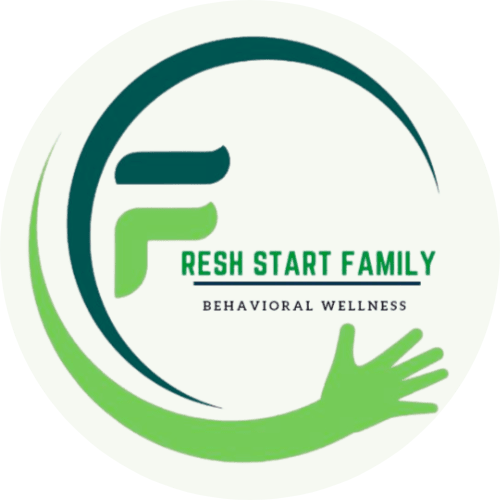How to Recognize and Manage Stress During Major Life Changes

Posted on August 6th, 2025
Even when change is exciting, life often presents unexpected challenges. Moving to a new city, starting a different job, adjusting to a new family dynamic, or facing unexpected responsibilities can feel overwhelming.
Major life transitions often carry invisible weight, and even positive changes can trigger stress that creeps into daily life.
Stress doesn’t always announce itself with flashing warning signs. It can settle quietly into your routines, showing up in subtle ways that affect your mood, energy, and relationships.
Recognizing those signs early—and learning to respond with intention—can protect both your mental health and your overall well‑being.
Understanding how stress impacts the mind and body is the first step toward managing it. Here’s how to spot its presence during life transitions and take practical steps toward emotional resilience.
Recognizing the Physical Signs of Stress
Your body often signals stress before your mind fully registers it. Physical symptoms can sneak up gradually or hit suddenly during major life changes. You might notice tight shoulders, tension headaches, or fatigue that lingers even after a good night’s sleep. Sleep patterns can drastically change, with some individuals experiencing restless nights and others resorting to oversleeping to alleviate mental strain.
Digestive issues, appetite changes, or unexplained aches can also point to underlying stress. These physical cues are your body’s way of saying, “Slow down and pay attention.” Ignoring them allows stress to build, eventually affecting immune function and overall energy levels.
During big transitions—like a move, career change, or new family role—taking stock of physical symptoms can help you recognize when your stress is climbing. Regular check‑ins with yourself, such as noticing how your body feels in the morning or after work, can reveal patterns that need attention.
Simple lifestyle shifts, like staying hydrated, stretching, or stepping outside for a short walk, can help calm the nervous system. While these habits don’t eliminate stress entirely, they can prevent it from escalating into something more disruptive.
Emotional and Behavioral Symptoms You Shouldn’t Ignore
Stress doesn’t just live in the body; it changes how you think and act. Emotional signs often appear as irritability, frustration, or sadness that feels out of proportion to daily events. You might find yourself snapping at loved ones, struggling to focus, or withdrawing from social activities you normally enjoy.
Behavioral changes often follow. Some people overwork or overcommit to distract themselves from emotional discomfort. Others retreat into avoidance behaviors, like scrolling endlessly on their phone or skipping tasks they usually handle with ease. These shifts may seem minor in isolation, but together, they can chip away at your emotional resilience.
Paying attention to these patterns matters because unaddressed stress can spiral into anxiety or depression over time. Journaling about daily moods or asking a trusted friend if they’ve noticed changes in your behavior can provide perspective. Recognizing these emotional and behavioral shifts early allows you to take meaningful action before stress takes a deeper toll on your mental health.
How Life Changes Amplify Stress
Not all stress comes from negative experiences. Even positive life transitions can disrupt your sense of stability. A promotion, a wedding, or moving into a dream home might seem purely joyful, yet these milestones require energy, adjustment, and emotional bandwidth that can leave you drained.
Stress during transitions often stems from uncertainty. Leaving a familiar environment, adjusting to new responsibilities, or managing additional financial and social pressures can feel like walking on unsteady ground. Your mind works overtime to predict outcomes and adapt, which increases mental fatigue.
Extended transitions—like relocating for a new job or navigating long-term family changes—compound the effect. Without intentional coping strategies, small stressors pile up, leaving you reactive, exhausted, or emotionally flat. Recognizing that life changes naturally elevate stress helps you approach transitions with patience and self‑compassion, instead of self‑criticism for feeling overwhelmed.
Effective Stress Management Techniques for Life Transitions
Managing stress during life changes requires a mix of awareness and action. Grounding your day with small, reliable routines helps provide stability when everything else feels in flux. Setting aside time for meals, movement, and brief mental breaks can keep your energy steady.
Mindfulness practices, like meditation or even two minutes of focused breathing, reduce the body’s stress response and create a buffer against emotional overload. Journaling your thoughts or listing daily gratitudes can also shift focus from uncertainty to small wins.
Social support is equally powerful. Sharing what you’re experiencing with a trusted friend, family member, or therapist lightens the emotional load and reminds you that you’re not navigating this alone. If stress shows up as racing thoughts at night, brief screen‑free time before bed can help your mind wind down.
When you combine these practical techniques, life's transitions become less overwhelming and more manageable.
When to Seek Professional Support
Sometimes stress reaches a level where self‑care strategies aren’t enough. If physical symptoms linger, emotional patterns deepen, or your daily functioning feels compromised, it’s time to reach out for professional support. Major life changes are challenging enough without carrying the burden alone.
Professional guidance provides tools tailored to your specific needs, helping you manage stress before it snowballs into larger health concerns. Virtual services make support even more accessible, especially during busy or transitional periods.
Consider booking a confidential telehealth consultation with us. Our team specializes in helping individuals and families navigate life transitions with clarity and confidence. Remote sessions offer expert guidance without disrupting your schedule, giving you actionable strategies to restore balance and build resilience.
For more information or to schedule an appointment, call (910) 436‑6495, or email [email protected]. Taking action today can turn overwhelming change into an opportunity for growth and renewed well‑being.
Contact
Get in Touch for Support and Healing
I'm here to help guide you on your path to mental wellness. Whether you’re seeking therapy, coaching, or holistic care, I'm ready to listen and work with you every step of the way.
